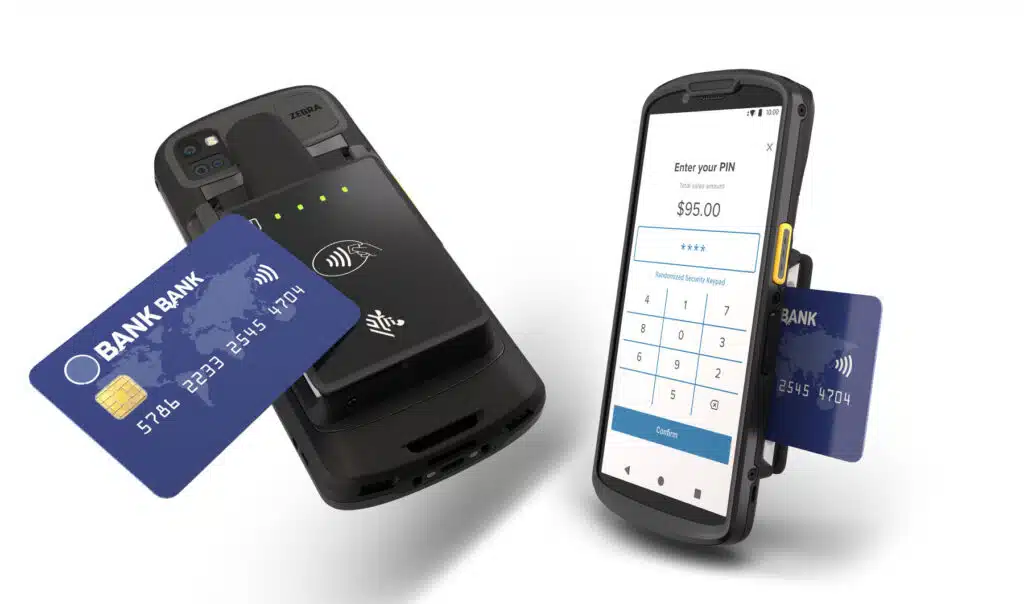Zebra Technologies Corp. has entered the highly competitive mobile-payments market with the introduction of Zebra Pay, a software-based, PIN entry, consumer off-the-shelf mobile payment solution for merchants.
With solutions like Zebra Pay, the cardholder’s PIN is entered on an acquirer’s app running on the mobile device, while the card is inserted into a secure card reader on the device. Merchant segments being targeted by Zebra include the retail, hospitality, entertainment, field mobility, and logistics industries.
Zebra Pay, which runs on standard Google Mobile Services and the latest Android operating system, enables merchants to accept payments on Zebra’s TC5x and TC7x mobile computers and ET4x tablets. Merchants can use Zebra Pay to equip employees with a hand-held mobile payment terminal that can be used for line busting, assisted selling, extended aisle, curbside and field-based sales, and it reduces the need for customers to support multiple devices, Zebra says.

The introduction of Zebra Pay comes at a time when mobile wallets and card-based payments are projected to account for nearly 88% of all in-person transactions by 2026, according to research by FIS Inc. At the same time, 76% of shoppers surveyed by Zebra for its annual global-shopper study say they expect to encounter the latest checkout technology in stores, which includes mobile point-of-sale solutions.
“Zebra Pay continues our legacy of innovating new ways of working with an industry-first mobile-payment solution,” Julie Johnson, a senior vice president and general manager at Zebra Technologies, says in a statement. “Developed to elevate the customer experience and increase associate productivity, Zebra Pay delivers a true multi-functional mobile device that can handle mobile payments, reducing the need for dedicated payment terminals and opening new paths to accept payments.”
Zebra Pay accepts contactless payments and those made with chip and magnetic stripe cards and is certified with Worldpay from FIS in North America and Global Payments in the Europe, Middle East, and Africa region, Zebra says.



